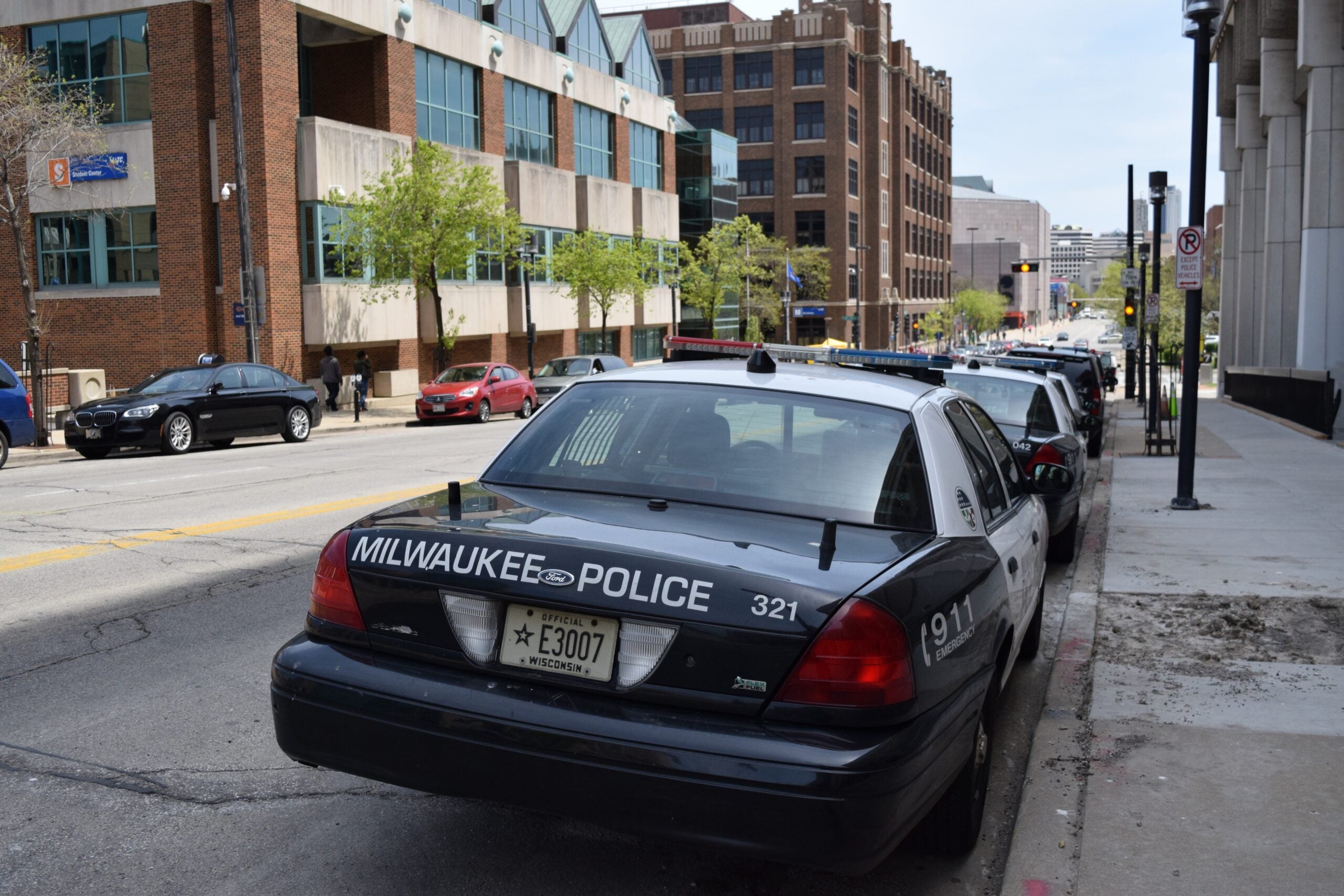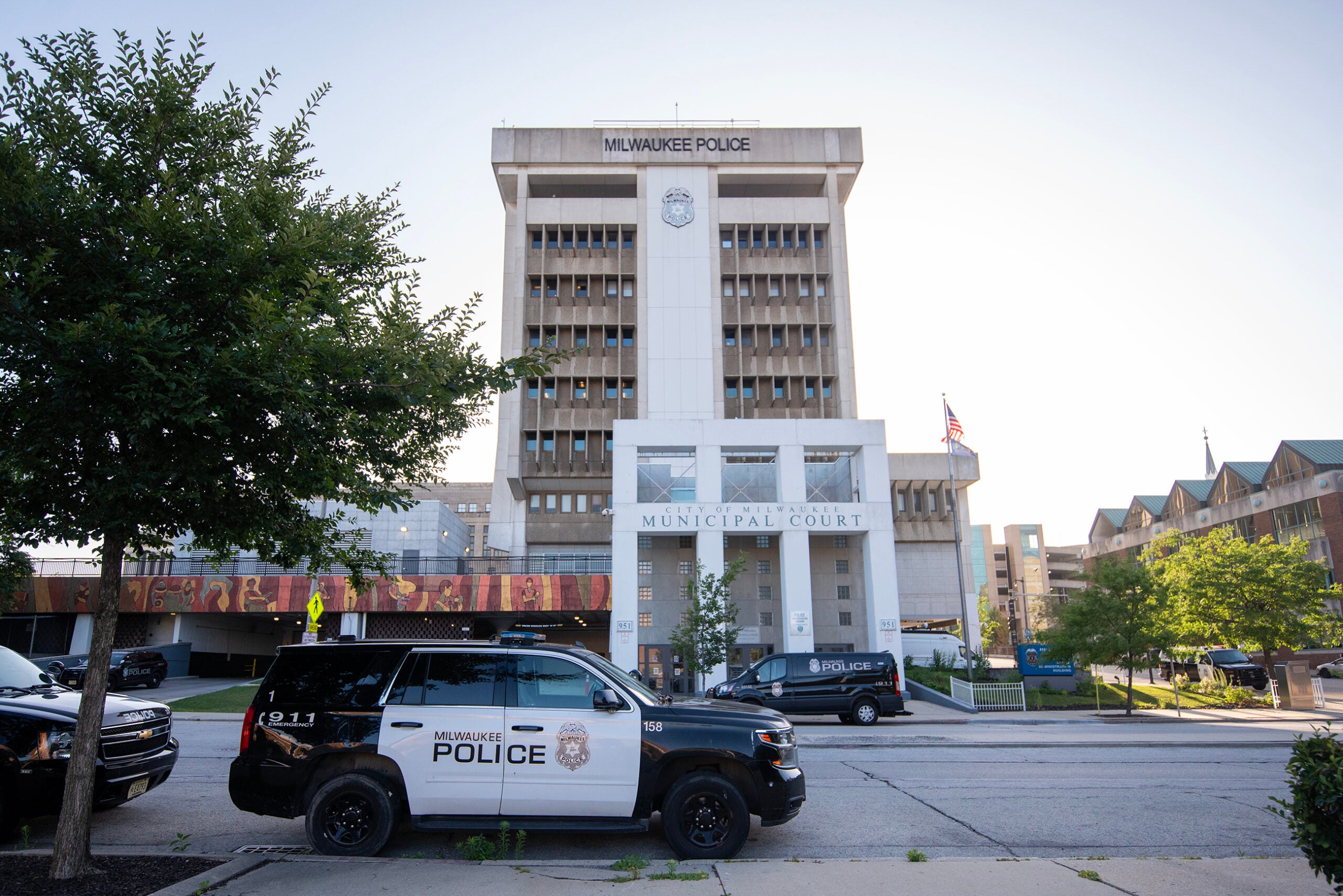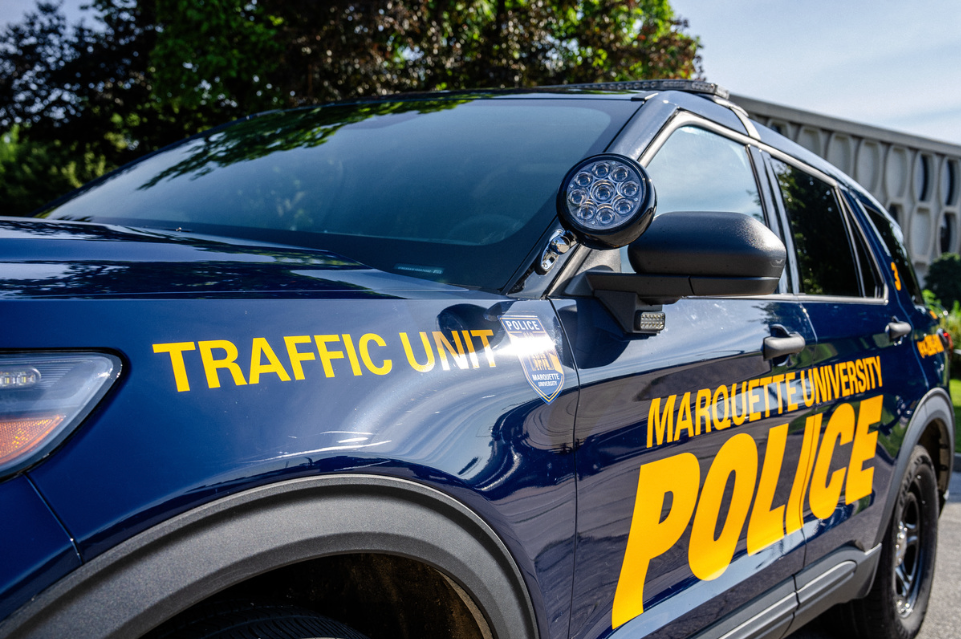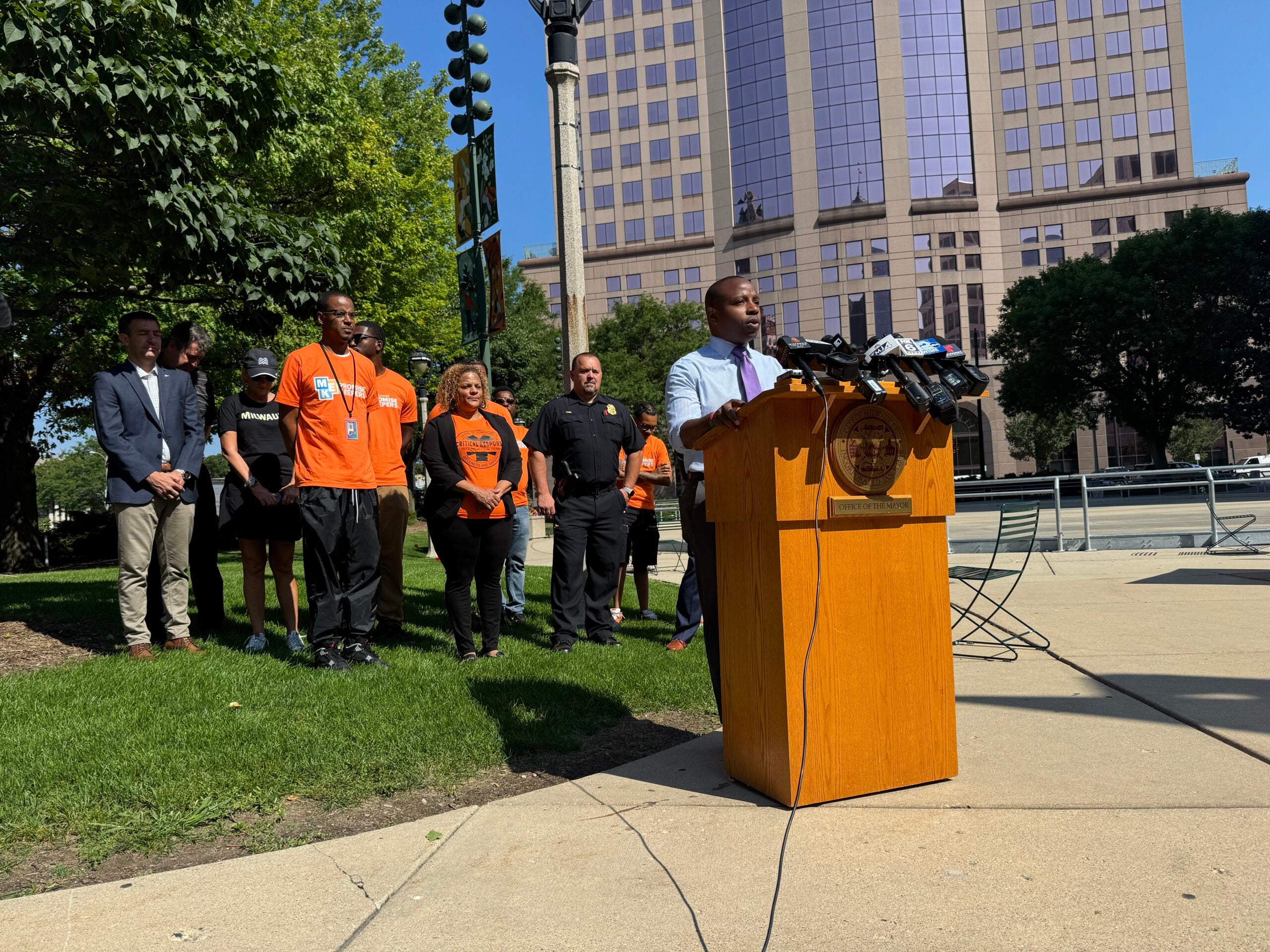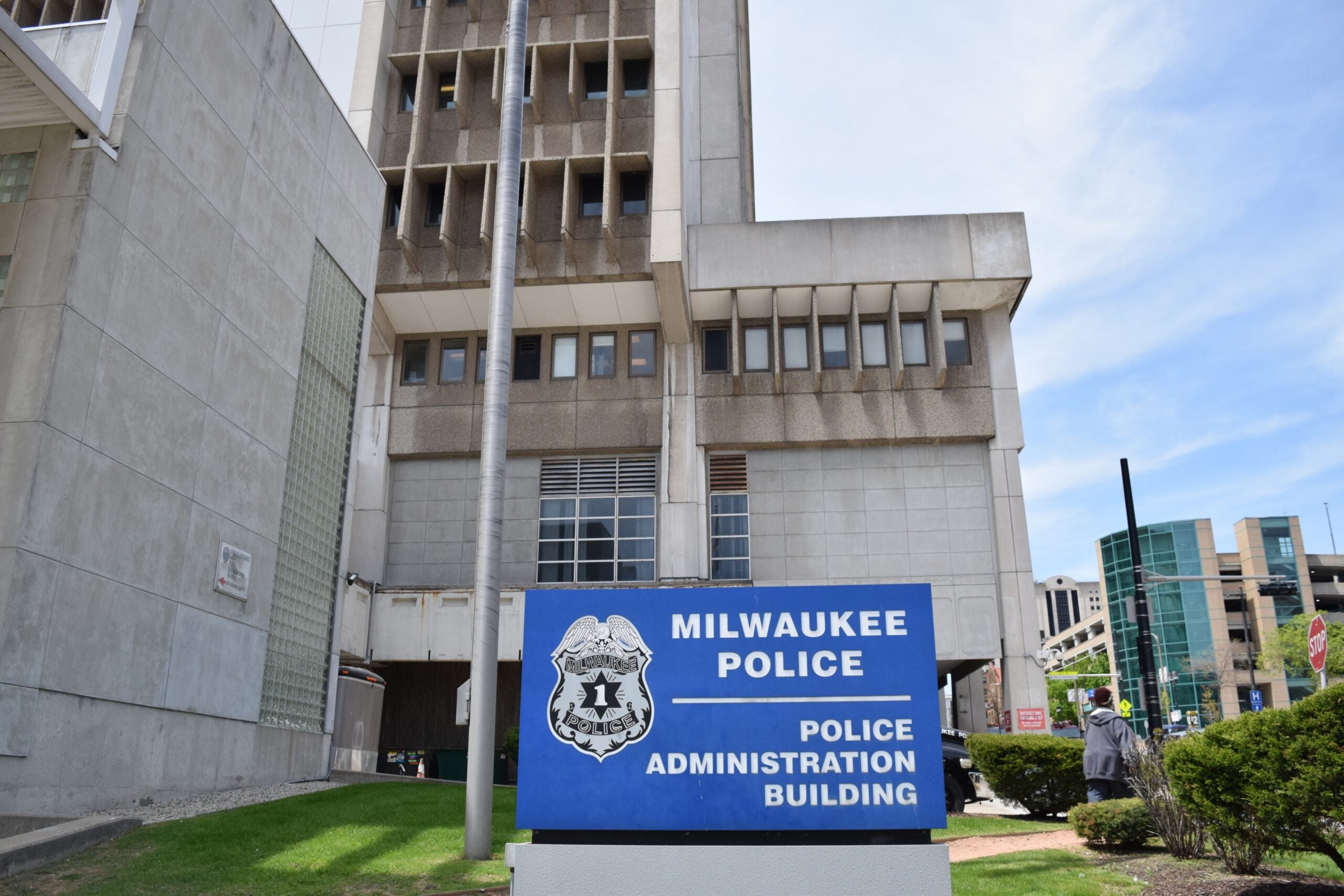Republican state lawmakers who represent Milwaukee County are asking members of the Milwaukee Common Council to vote against the mayor’s budget proposal to cut dozens of sworn police officers from the force.
A letter signed by seven legislators warns Milwaukee’s crime rate will worsen if the number of officers are reduced.
Milwaukee Mayor Tom Barrett released his proposed budget Sept. 24, which included reducing the number of sworn officers by 60. There are currently 1,864 sworn police officers in the city.
News with a little more humanity
WPR’s “Wisconsin Today” newsletter keeps you connected to the state you love without feeling overwhelmed. No paywall. No agenda. No corporate filter.
Barrett has said he doesn’t want to cut the positions, but increases to the police department’s budget, including union-negotiated raises, make it necessary.
Barrett said the police officer jobs could be spared if the state Legislature supports a plan local officials have floated to increase the sales tax in Milwaukee County.
The letter from lawmakers doesn’t reference the sales tax proposal.
“In a city like Milwaukee, which is consistently ranked above Chicago as the fourth or fifth most dangerous city in the United States, such a vast reduction in the police force is untenable,” the letter dated Oct. 3 states. “In 2017, the Milwaukee Police Department’s average response time to a violent crime was 24 minutes; our brave police officers already suffer from a lack of resources and this proposal will only make their life-saving work more difficult.”
Barrett couldn’t be reached for comment about the letter.
The publication 24/7 Wall St. reviewed violent crime rates in major U.S. cities from the FBI’s 2017 Uniform Crime Report. In that review, Milwaukee ranked seventh. However, the number of homicides and non-fatal shootings in the city have gone down since the report was released.
In 2019, homicides in Milwaukee are down 12 percent from 2018, and 24 percent from 2017. As of Oct. 2, there were 71 homicides in Milwaukee versus 81 through the same time period in 2018, and down 93 in 2017.
Police Chief Alfonso Morales told WPR last week that the reduction in officers could derail the success the department has been having.
The letter to the Common Council was signed by Sen. Dale Kooyenga, R-Brookfield, and state Reps. Janel Brandtjen, R-Menomonee Falls, Mike Kuglitsch, R-New Berlin, Chuck Wichgers, R-Muskego, Rob Hutton, R-Brookfield, Jim Ott, R-Mequon and Joe Sanfelippo, R-New Berlin.
The letter contends the mayor’s budget will drive business and investment away from the city, further worsening the city’s economic issues.
Brandtjen told WPR she signed the letter because she’s worried about Milwaukee’s most central city neighborhoods.
“Less officers in Milwaukee will certainly hit the poorest communities the hardest,” Brandtjen said. “A safe Milwaukee is the cornerstone for growth in schools, families and strong economic development.”
Brandtjen said she doesn’t see a sales tax increase to be a viable solution to fund police positions.
“I don’t know that they’ve been a good stewards of our monies,” she said.
“Milwaukee certainly has had a lot of (special taxing districts) and not only that but the trolley,” Brandtjen said, referring to the Milwaukee streetcar system. “And I don’t know that additional revenue will be spent wisely.”
Milwaukee Alderman Robert Bauman received the letter on Monday. He questioned state lawmaker’s right to interfere with city politics.
“All seven of these people who signed this letter, who represent the Milwaukee suburbs, have consistently denied the city the opportunity to develop our own resources,” Bauman said. “Whether it is through dedicated sales taxes, to support transit, to support safety, to support the parks, to support all the public services the city and, to the extent, Milwaukee County attempt to provide, they consistently stand in the way.”
Sanfelippo said he would consider supporting allowing Milwaukee County to go to referendum for a 1 percent sales tax increase if the money went toward public safety.
“I represent two suburbs, West Allis and New Berlin, and we have a lot of problems with crime coming out of the city and into the suburbs,” Sanfelippo said. “Every time (Milwaukee) gets money from the state they spend it on other things. I’ve heard the sales tax proposal and I’m watching to see where it goes. It has to be centered around safety.”
Wisconsin Public Radio, © Copyright 2025, Board of Regents of the University of Wisconsin System and Wisconsin Educational Communications Board.

